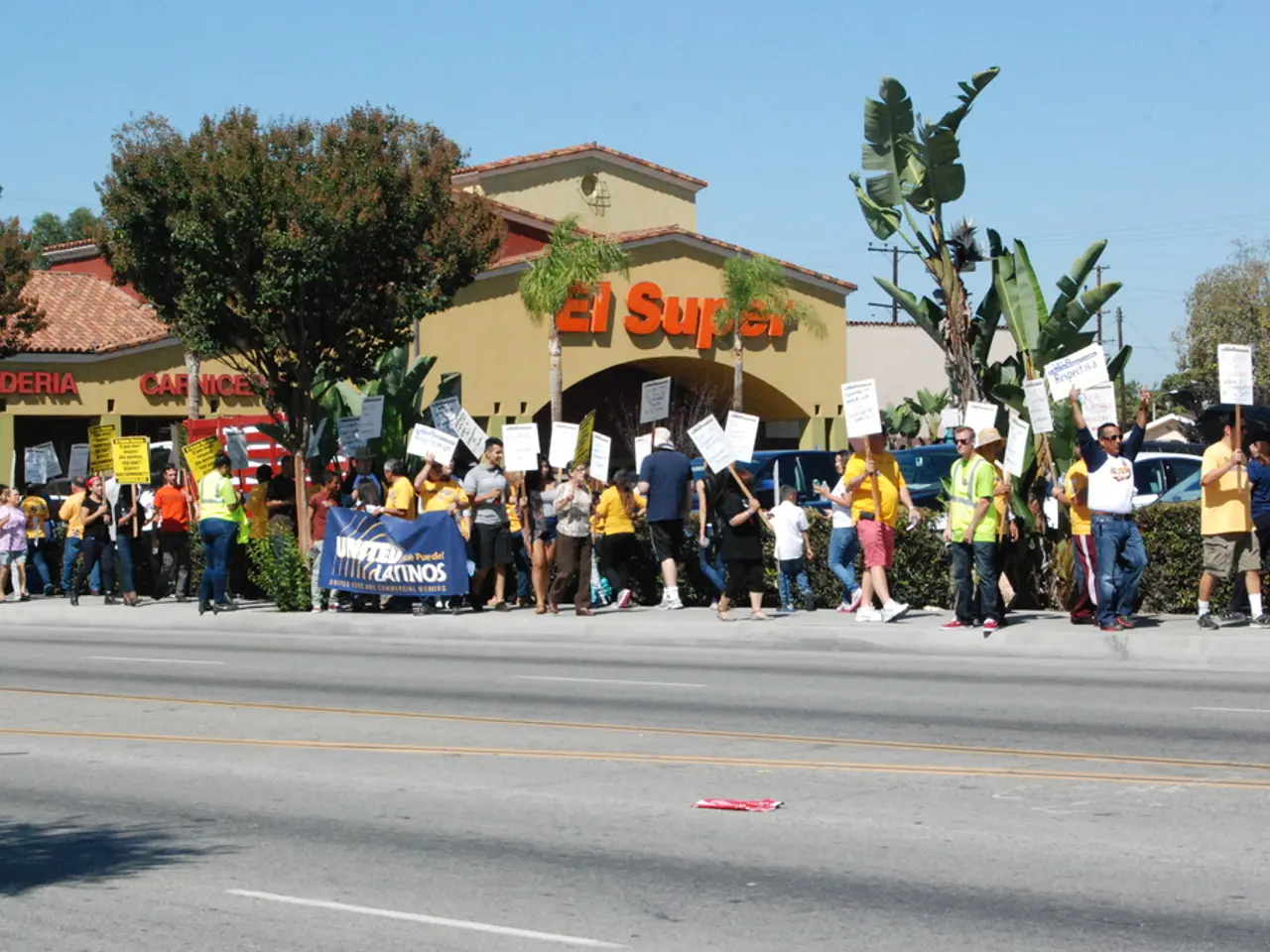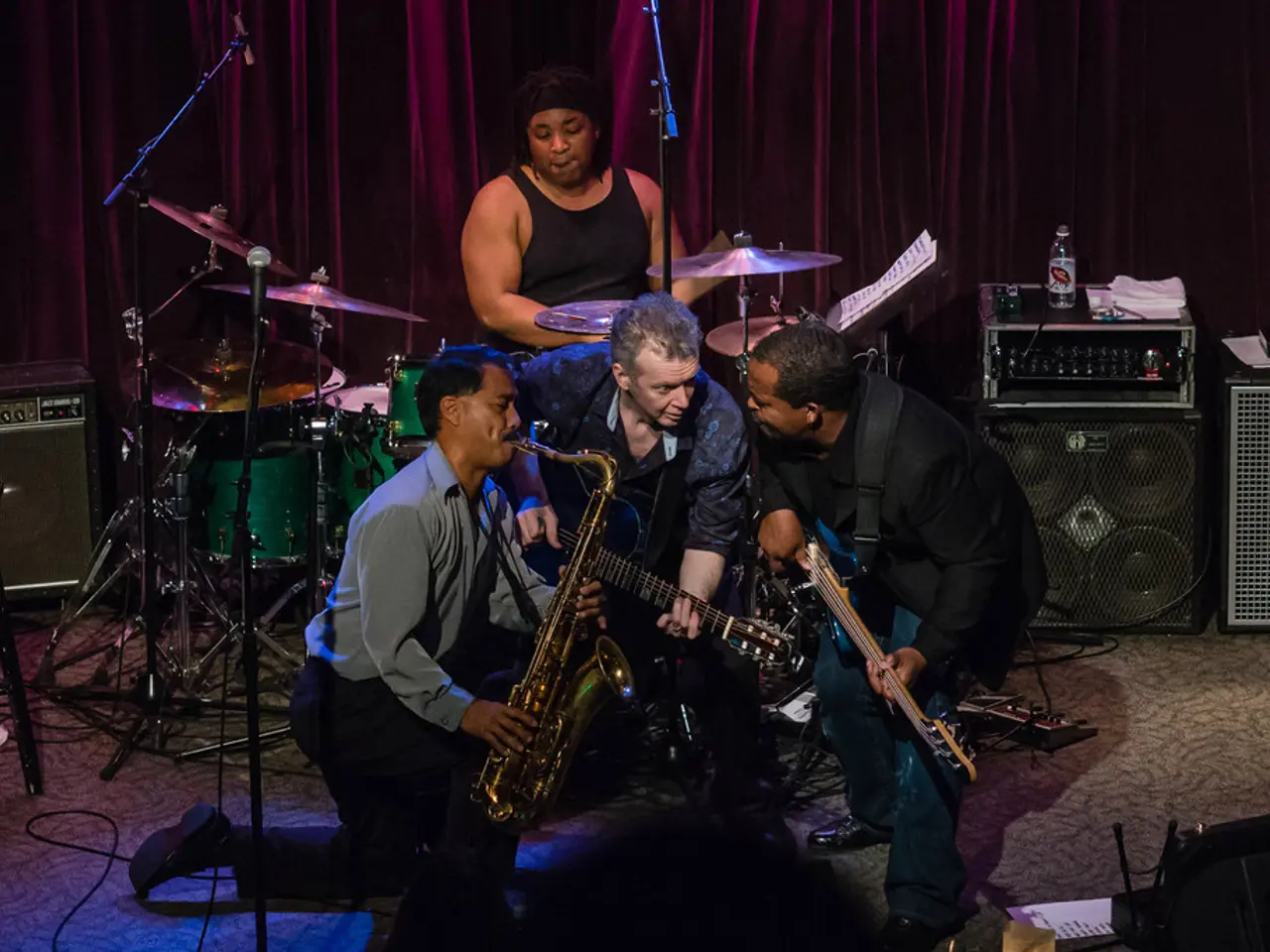Israeli bombings in the capital city represent a significant intensification
### Title: Israel's Airstrikes in Syria: Protecting the Druze and Navigating Complex Geopolitics
In a series of airstrikes, Israel targeted the Syrian capital, Damascus, on Tuesday, hitting the military headquarters and the area near the Syrian Presidential Palace. The bombing was reportedly carried out to protect the Druze religious minority in Syria, a community that has been divided between the two countries since the Mideast war of 1967.
The Druze, an ethno-religious minority, have communities in both Israel (notably in the Golan Heights and northern Israel) and in southwestern Syria (including the Jabal al-Druze region). Israel has shown interest in the welfare of Druze communities, especially those in the Israeli-controlled Golan Heights, fostering ties and providing humanitarian assistance.
The militias operating in southern Syria, especially Iranian proxies or Hezbollah, threaten the Druze population and the security of Israel’s Druze citizens. Israel’s attacks on Iranian and Hezbollah targets in Syria can thus be framed as indirectly protecting the Druze by preventing hostile forces from gaining a foothold in Druze-inhabited areas.
The bombings come after two days of clashes between Bedouin tribes and Druze militias in the southern Syrian province of Sweida. Some Druze in Israel serve in the military, and some Druze leaders have asked the Israeli government to help their counterparts in Syria. However, many hard-line Sunni factions that overthrew the Assad regime see the Druze as heretics, adding a complex layer to the conflict dynamics.
The Syrian government, led by President Ahmad al-Sharaa, has signaled its openness to peace with Israel. President al-Sharaa, who led an organization linked to al-Qaida, had a $10 million bounty on his head by the U.S., but this was lifted when he came into power. Israel remains deeply skeptical of President al-Sharaa.
Israel's actions aim to limit Iranian military entrenchment, which could destabilize the Druze regions or draw them into wider conflict. The U.S. is still in talks with both Israel and Syria about the situation in southern Syria, with U.S. Secretary of State Marco Rubio expressing concern about the violence, stating it is a direct threat to efforts to help build a peaceful Syria.
Any potential security agreement between Israel and Syria that addresses mutual concerns, including the safety of minorities like the Druze, would need to navigate complex sectarian loyalties and regional rivalries. Progress on this front remains challenging but could reduce conflict risks if Iranian entrenchment and proxy violence are curtailed. Syria's state media reported a ceasefire agreement, but its effectiveness is unclear. Syria has no real army to attack back due to previous bombings of its military installations.
- The Israeli government's airstrikes in Syria appear to be an attempt to protect the Druze community, given their shared border and Israel's concern for the Druze population in the Golan Heights.
- The ongoing war-and-conflicts in Syria, particularly in the southern province of Sweida, have brought the Druze community into the broader political context, with some Druze leaders seeking help from Israel's government to safeguard their counterparts.








